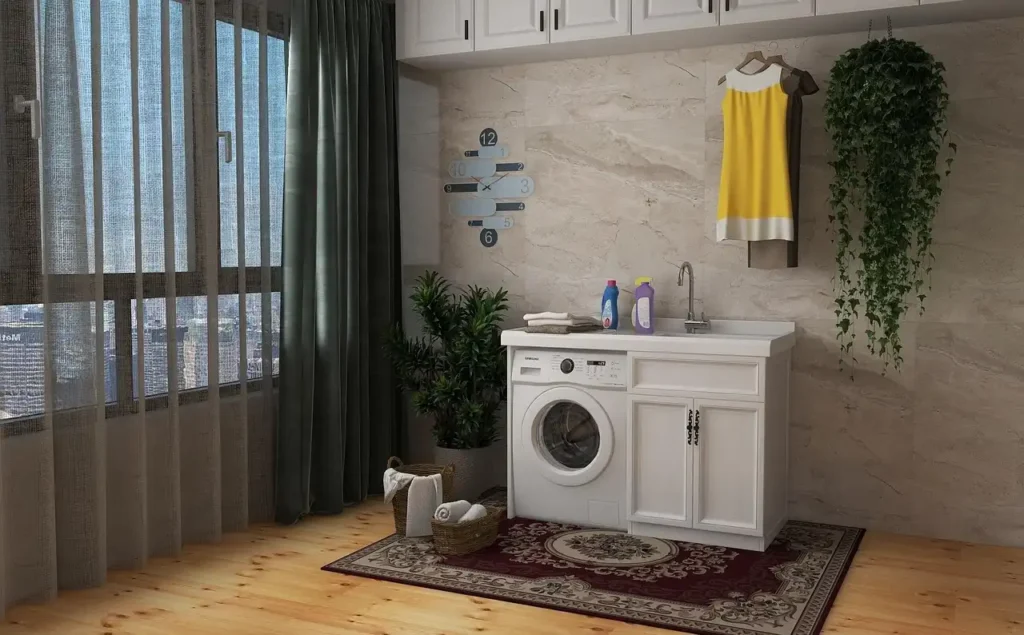How to Get the Smoke Smell Out of a House: Your Complete Guide
You’ve walked into your home and immediately noticed that stubborn smoke smell clinging to everything.
Whether it’s from cigarettes, a kitchen mishap, or a recent fire, smoke odors penetrate deep into fabrics, walls, and air ducts.
The good news? You can eliminate these persistent smells with the right combination of techniques and patience.
Start with Immediate Ventilation and Air Circulation

You’ll want to get fresh air moving through your house as quickly as possible. Open every window and door to create cross-ventilation that pushes stale, smoky air outside while drawing in clean air.
Set up fans in strategic locations to boost air circulation. Place box fans in windows – one blowing air out and another pulling fresh air in from the opposite side of the house.
This creates a powerful air exchange that begins removing smoke particles immediately. Run your HVAC system on the “fan only” setting to circulate air through your entire home.
However, you’ll need to replace the air filter first since it likely absorbed smoke particles. Use a high-efficiency filter designed to capture small particles and odors.
Consider renting or buying air purifiers with HEPA filters and activated carbon.
These machines actively pull smoke particles and odors from the air, working continuously to clean your indoor environment even after you close the windows.
Deep Clean All Surfaces and Textiles

You’ll need to tackle every surface since smoke residue settles everywhere. Wash all removable fabric items including curtains, pillows, blankets, and clothing.
Start with hard surfaces like walls, ceilings, and floors using a solution of warm water and white vinegar (1:1 ratio) or trisodium phosphate (TSP) cleaner for heavy smoke damage.
Add a cup of white vinegar to your washing machine along with regular detergent to neutralize odors. For items that can’t be washed, sprinkle baking soda liberally, let it sit overnight, then vacuum thoroughly.
Don’t forget about upholstered furniture and carpets. Steam clean carpets and rugs, or hire professional cleaners for valuable pieces.
You can also sprinkle baking soda on carpets, work it in with a brush, leave overnight, and vacuum the next day.
Clean all lampshades, picture frames, and decorative items. Smoke particles cling to these overlooked surfaces and continue releasing odors long after the initial exposure.
Wipe down books, electronics, and anything else that might have absorbed smoke.
Use Natural Odor Absorbers Throughout Your Home
You’ll find that natural odor absorbers work effectively and safely to neutralize lingering smoke smells.
Place bowls of activated charcoal, coffee grounds, or baking soda in each room, replacing them every few days until the odor disappears.
White vinegar bowls also absorb odors naturally. Set small dishes of vinegar around your home, especially in areas where the smoke smell seems strongest.
The vinegar smell will dissipate within hours, taking smoke odors with it. Try the bread trick for quick results in smaller spaces.
Place slices of white bread in bowls throughout affected rooms overnight. The bread absorbs odors remarkably well, though you’ll need to replace it daily until the smell is gone.
Essential oils can help mask remaining odors while providing pleasant scents. Add a few drops of lemon, eucalyptus, or tea tree oil to cotton balls and place them around your home.
These oils also have natural deodorizing properties that complement your cleaning efforts.
Address Your HVAC System and Ductwork

You’ll need to give special attention to your heating and cooling system since it circulates air throughout your home.
Replace all air filters immediately, then continue changing them weekly until the smoke smell completely disappears.
Clean air vents and return air grilles with the same vinegar solution you used on walls. Remove vent covers and wash them thoroughly, then wipe down the visible portions of ductwork that you can reach safely.
Consider having your air ducts professionally cleaned if the smoke exposure was severe or prolonged.
Professional duct cleaning removes accumulated smoke particles that regular filter changes can’t eliminate, preventing these particles from recirculating through your home.
Run your system regularly during the deodorizing process. Constant air circulation helps distribute your cleaning efforts and odor absorbers throughout the house more effectively than relying on natural air movement alone.
Target Specific Problem Areas
You’ll often find that certain areas retain smoke smells more stubbornly than others. Kitchens typically need extra attention since cooking smoke combines with existing grease and food odors on surfaces.
Bathrooms may seem smoke-free but actually trap odors in tiles, grout, and exhaust fans. Clean grout lines with a baking soda paste, and remove and wash exhaust fan covers thoroughly.
Basements and attics require special consideration since they often have poor ventilation and may contain stored items that absorbed smoke.
Remove everything possible for cleaning or disposal, then treat these spaces like any other room with ventilation and odor absorbers.
Check inside closets and cabinets where smoke can settle and linger unnoticed. Wipe down all interior surfaces and place odor absorbers inside to address trapped smells in these enclosed spaces.
Know When to Call Professionals

You’ll want to consider professional help if your efforts don’t produce results after several weeks of consistent cleaning.
Fire restoration companies have specialized equipment and products that can eliminate even the most stubborn smoke odors.
Ozone generators can be effective but require professional handling since ozone is harmful to humans and pets.
You’ll need to vacate your home during treatment, but these machines can neutralize odors that resist other methods.
Professional carpet and upholstery cleaning services have access to commercial-grade equipment and cleaning solutions designed specifically for smoke damage.
They can often save items that seem beyond hope with household cleaning methods.
Sometimes replacement becomes necessary for heavily affected items like drywall, insulation, or carpeting.
Professional assessors can help you determine what can be cleaned versus what needs replacement for complete odor elimination.
Prevent Future Smoke Odor Problems
You’ll save yourself significant effort by taking preventive measures against future smoke exposure.
Install and maintain smoke detectors to catch fires early before they cause extensive smoke damage throughout your home.
Establish no-smoking policies indoors and provide designated outdoor smoking areas away from windows and air intake vents.
Even outdoor smoking near your home can allow smoke to drift inside through open windows or HVAC systems.
Keep your kitchen exhaust fan clean and use it whenever cooking to prevent cooking smoke from settling into fabrics and surfaces.
Clean the fan and replace filters regularly to maintain its effectiveness. Address any sources of combustion in your home like fireplaces, wood stoves, or candles.
Ensure proper ventilation and regular maintenance to prevent smoke from escaping into your living spaces.
Conclusion
You can successfully eliminate smoke smells with patience, thorough cleaning, natural odor absorbers, and proper ventilation techniques applied consistently throughout your home.







